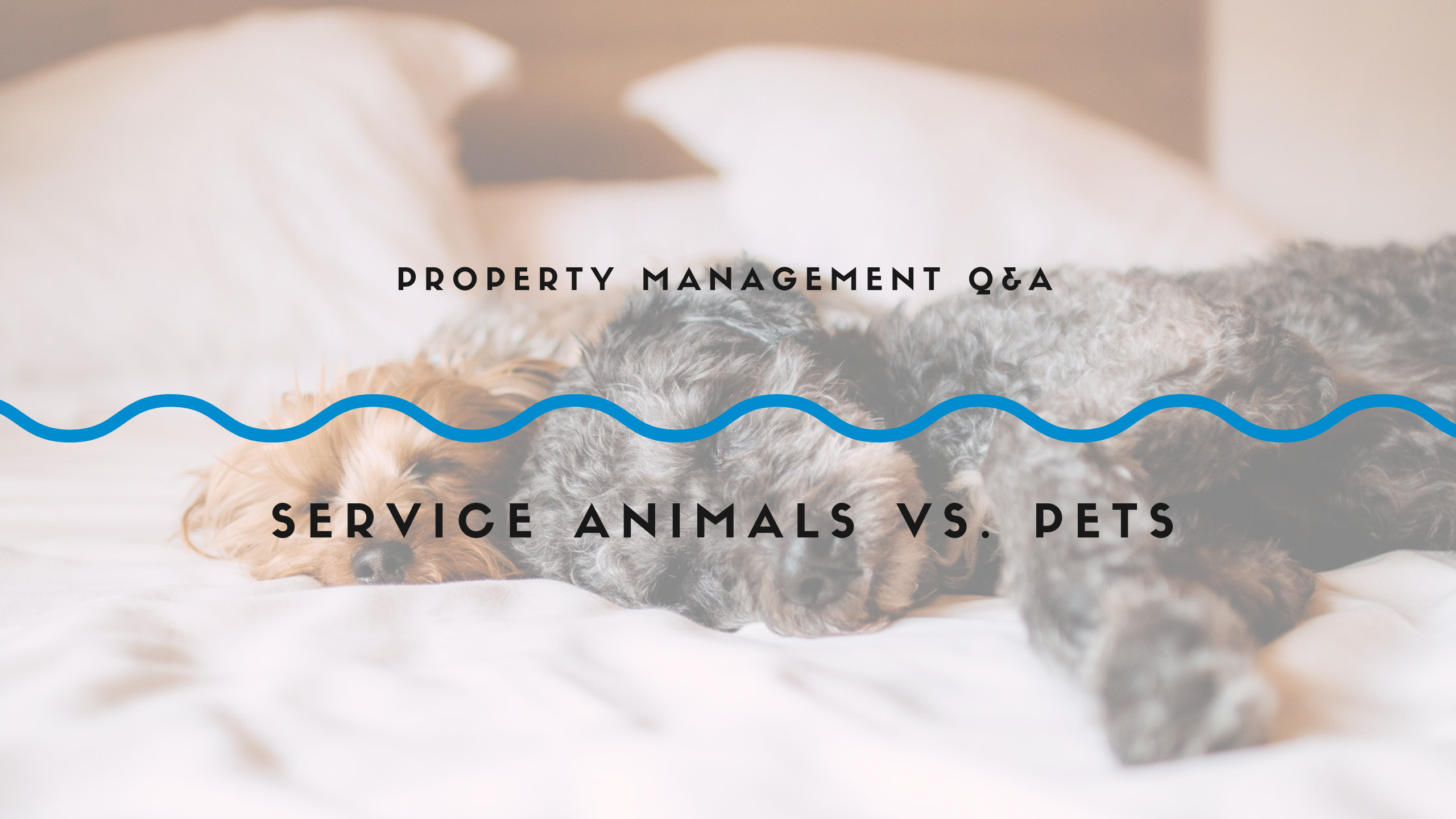When is a dog not a pet?
When it’s a service animal.
If you’re renting out a property in Cary or anywhere in the U.S., it’s important to understand the laws protecting people with disabilities. It’s easy to make an expensive mistake by telling prospective or current tenants that pets aren’t allowed in your property under any circumstances. If that tenant has a service or support animal, it ceases to be a pet, and you legally have to allow it.
The North Carolina Real Estate Commission has some good information about this, and today we’re helping Cary landlords and rental property owners understand their requirements and responsibilities when it comes to pets and service animals.
MasterKey is a property owner's choice for Cary property management services throughout the Triangle area, including Raleigh, Apex, Morrisville and Holly Springs.
Federal Laws Landlords Need to Know
When we’re talking about pets and service animals, there are two specific laws that govern how you treat tenants and applicants with disabilities. These are the Fair Housing Act and the Americans with Disabilities Act.
Both of these laws protect people with physical, emotional, and intellectual disabilities against discrimination. You cannot deny an otherwise qualified tenant from renting your home because she has a wheelchair. You also cannot discriminate against an otherwise qualified tenant from renting your home because he has a service animal.
Service Animals are Accommodations
These laws require landlords to make reasonable accommodations for their tenants with disabilities. This might mean shower bars or wider doorways or a dedicated parking space that’s closer to the building. It might also mean allowing a dog or a cat or some other animal to move into the property even if you don’t allow pets.
The service animal is seen as an accommodation, not as a pet. Therefore, not only do you have to allow it; you also cannot charge a pet deposit, pet fee, or pet rent.
Service Animal Requirements and Restrictions
When the tenant has an obvious physical or intellectual disability, you cannot ask what the service animal is for. Obviously, a person who is blind should not have to explain her need for a Seeing Eye Dog. However, you can ask for documentation if the disability is not immediately apparent. The tenant will need to supply documentation from a medical professional explaining the disability and why the animal is required. It’s a good idea to be careful here. Asking for documentation is one thing; being abrasive and expressing doubt that a service or support animal is needed can get you in trouble.
The tenant is still required to clean up after the animal and ensure it isn’t a nuisance to other tenants or the property. You can appeal to deny a tenant’s service or support animal if you can prove it would cause you financial harm or put people in danger. This is difficult to do.
 Navigating the pet versus service animal landscape is not always easy. The fair housing and ADA laws are strict, and violating them comes with huge penalties. We advise caution and education.
Navigating the pet versus service animal landscape is not always easy. The fair housing and ADA laws are strict, and violating them comes with huge penalties. We advise caution and education.
We’d be happy to tell you more about Cary property management and how we can help. Contact us at MasterKey Property Management for additional information.


